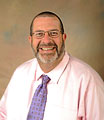EXPERTS AVAILABLE: Journalists Guiltless After Latest Round of Wikileaks, MU Experts Say
November 30th, 2010
The views and opinions expressed in this “for expert comment” release are based on research and/or opinions of the researcher(s) and/or faculty member(s) and do not reflect the University’s official stance.
COLUMBIA, Mo. – With its major release of classified U.S. government information, the Wikileaks organization has forced its way into international news again. Now that the secret diplomatic data have hit newspapers, broadcast media and Internet wires, University of Missouri free speech experts say that the journalists who have disseminated the information have not crossed legal or ethical boundaries.
Christina Wells, the Enoch H. Crowder Professor of Law at the MU School of Law, and a free speech law expert, says that while the government would probably have a legal case against the source of the information leaks, legal precedent for disseminating the information is on the side of journalists.

Christina Wells, the Enoch H. Crowder Professor of Law at the MU School of Law.
“The bar that the Pentagon Papers case set for press injunction is so high that it would be extremely difficult for the government to meet it,” Wells said. “There also is very little basis for criminally prosecuting publishers of such information. Journalism publishing has evolved so much with the Internet that it would be impossible to stop the spread of information, even if the government legally could.”
Charles Davis, an associate professor of journalism studies at the Missouri School of Journalism and freedom of information expert, believes that while previous Wikileaks disclosures were handled poorly, the organization made a positive effort to work through the proper professional channels in this instance.
“After Wikileaks’ first massive data dump of Afghanistan war documents, it rightly received a great deal of criticism from the journalism community,” Davis said. “The newly released documents on the site are redacted in many key places and Wikileaks worked with journalism stalwarts like The New York Times, the Guardian and Der Spiegel on the vetting process.”

Charles Davis, an associate professor of journalism studies at the Missouri School of Journalism.
Davis says that while Wikileaks did release many sensitive documents, it did keep much war-related discourse off the wires, which he believes is a encouraging sign of improvement from the organization.
“15,000-plus documents from the Afghanistan stash remain unposted,” Davis said. “Wikileaks might be losing its anarchist ways, and not a moment too soon.”
Davis’ research focuses on access to governmental information and media law. He has published in law reviews and scholarly journals on many issues including federal and state freedom of information laws, libel law, privacy and broadcast regulation. He has earned a Sunshine Award from the Society of Professional Journalists for his work in furthering freedom of information.
Wells has worked professionally as an associate at Skadden, Arps, Slate, Meagher & Flom in Chicago and as an associate at Heller, Ehrman, White & McAuliffe in Los Angeles. Wells focuses her research on issues involving free expression and access to government information and teaches Freedom of Speech, Gender and the Law, Remedies and Administrative Law. She has been a member of the MU School of Law faculty since 1993.

